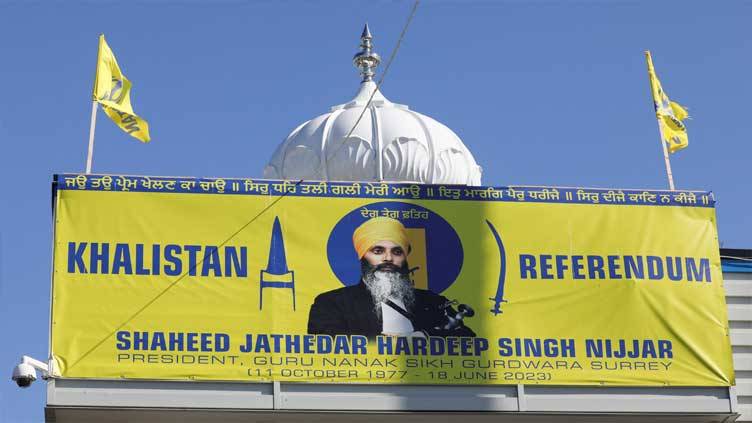Indian military establishment covert plan to assassinate Sikh leaders in Canada unearthed
Shares

In the midst of the escalating tensions between Canada and India, the recent remarks by Gaurav Arya, an unofficial spokesperson for the Indian government, have ignited significant apprehension concerning the safety of pro-Khalistan Sikh activists residing in Canada. Arya's statement implies that the Indian military establishment might be orchestrating actions aimed at targeting Khalistani activists on Canadian soil.
This brewing controversy closely follows accusations made by Canadian Prime Minister Justin Trudeau, who asserted that Hardeep Singh Nijjar, a Canadian national, was killed by Indian agents due to his involvement in the Khalistan Referendum campaign within Canada. These allegations have not only heightened tensions between the two nations but have also prompted Trudeau to demand answers from the Indian government regarding Nijjar's tragic demise.
Gaurav Arya, known for his provocative statements, made these assertions during one of his videos, where he alluded to a looming conspiracy. In the aftermath of the controversial death of Hardeep Singh Nijjar, Arya suggests that there are purported plans in motion, and he ominously predicts that one or two prominent Khalistani leaders may meet untimely fates in the coming days.
This unfolding situation has thrust the relationship between Canada and India into a state of unease and uncertainty. The allegations of Indian involvement in the death of a Canadian citizen, coupled with Arya's claims of potential harm to Khalistani leaders, have cast a shadow over diplomatic ties. Both nations find themselves at a crossroads, facing the daunting task of addressing these accusations while striving to maintain diplomatic decorum.
The international community is closely monitoring this volatile situation, as it underscores the complex dynamics of transnational issues and the delicate balance required in international diplomacy. The safety and well-being of pro-Khalistan Sikh activists in Canada remain a pressing concern, as does the need for a transparent and thorough investigation into the circumstances surrounding Hardeep Singh Nijjar's death.
The statements made by individuals like Gaurav Arya further underscore the urgency of finding a peaceful resolution to this contentious issue, which has the potential to impact not only the relationship between Canada and India but also broader international relations.
In these uncertain times, both Canada and India face the challenge of maintaining open lines of communication, addressing allegations, and ensuring the safety of their respective citizens, all while navigating the complex waters of geopolitics and international relations. The coming days will be crucial in determining how these two nations choose to manage this crisis and whether they can find common ground to ease the tensions that have emerged.
